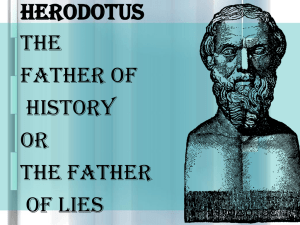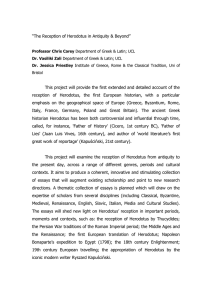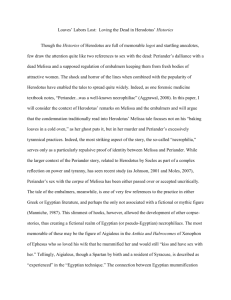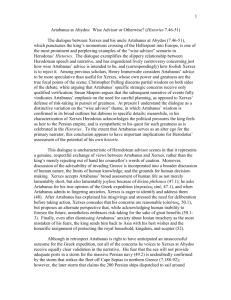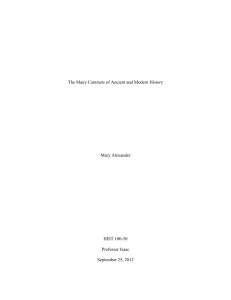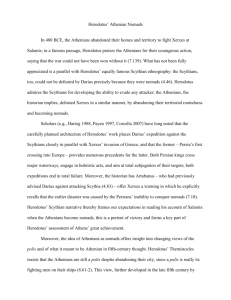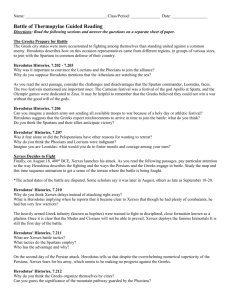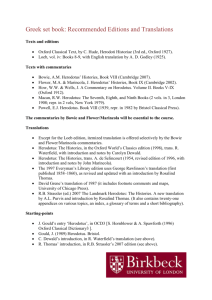Herodotus
advertisement
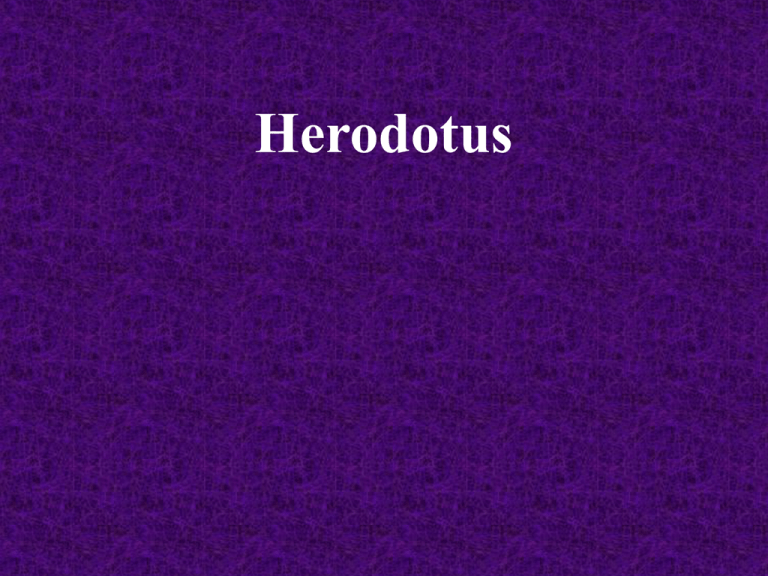
Herodotus Herodotus (484 B.C. – 425 B.C.) • Herodotus was born in Halicarnarssus. Which is a Greek colony on the coast of Asia Minor around 485 B.C. • He was called the “father of history”. This was because his history of the Persian War was the first narrative in the form that later came out be considered written history. • Herodotus was one of the first to disregard that supernatural in his writing. • He was the first writer who tried to write what happened in the past. A statue of Herodotus Travels • The colonies were freed from the Persian yoke, he left his home and traveled to Asia Minor, Greece, Macdedonia, Thrace, the coasts of the Black Sea, Persia, and Egypt. • The colony of Thurii was founded by Athens on the Tarentine Gulf, and Herodotus joined it in 443 B.C. • During the travel he collected historical, geographical, ethnological and archeological material for his History. Fame • Herodotus’ fame has endured as the first constructive artist in the field of historical scholarship. • He was the first writer to imply that the task of the historian is to reconstruct the whole past life of man. • The scholarship included, author of the earliest comprehensive historical work. A book about Herodotus Halicarnassus in the Persian War A book with information about Herodotus and the Persian War • Lyxes, the father of Herodotus, was probably from Caria, in Asia Minor. So was the female despot in Halicarnassus, Artemisia, who joined Xerxes in his expedition against Greece in the Persian Wars. • Following victories over the Persians by the mainland Greeks, Halicarnassus rebelled against foreign rulers. • In consequence of his part in rebellious actions, Herodotus was sent into exile to the Ionian island of Samos (home of Pythagoras), but then returned to Halicarnassus around 454 to take part in the overthrow of Artemisia’s son, Lygdamis. Occupation • Celebrating the Greek victory over the Persians, Herodotus’ Histories were written in the mid-fifth century B.C. • Herodotus wanted to present as much information about the Persian War as he could. • He included information on the entire Persian Empire, and simultaneously explains the orgins (aitia) of the conflict, by reference to mythological prehistory. • Herodotus’ history was an advance over the previous writers of quasihistory, who are known as logographers
